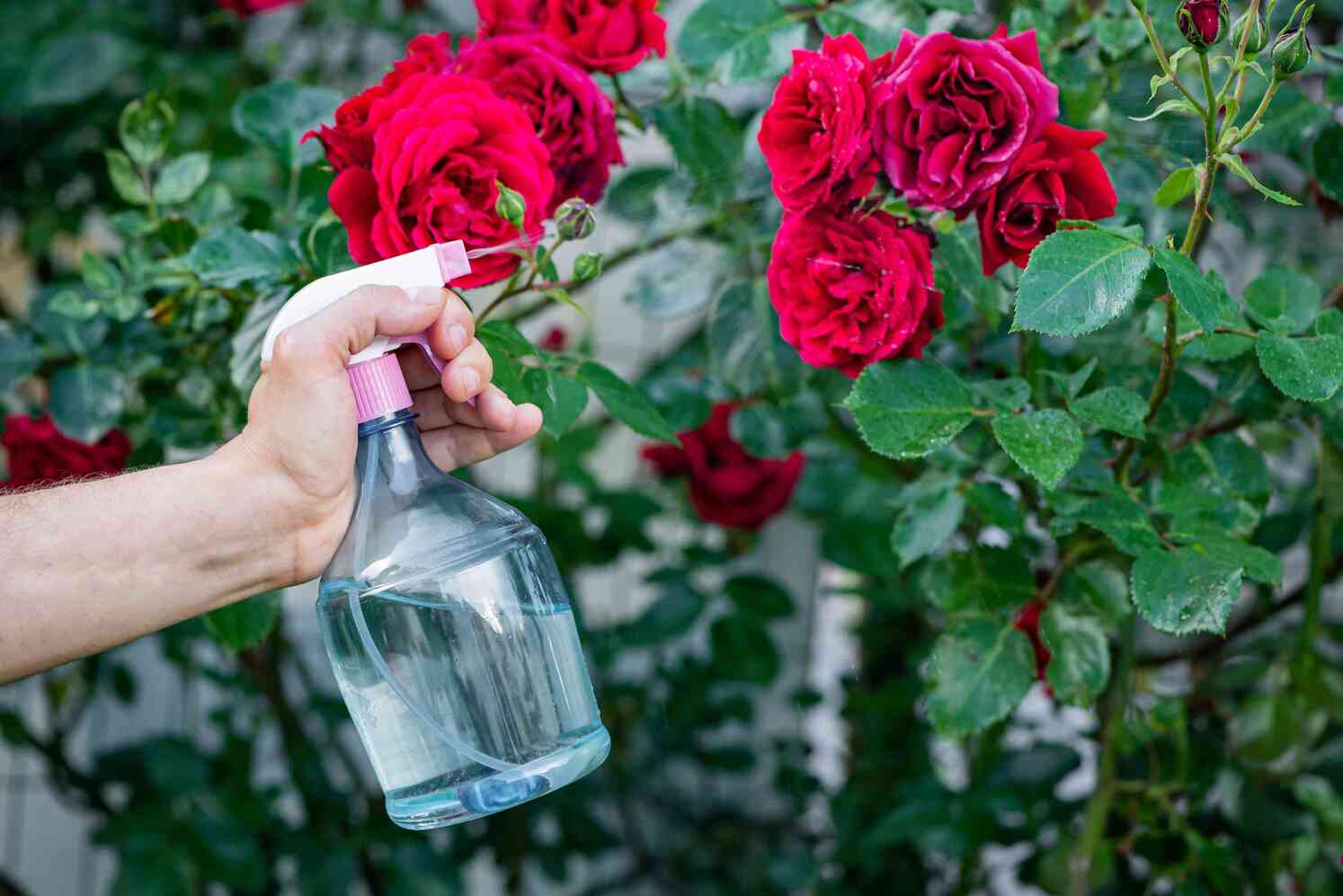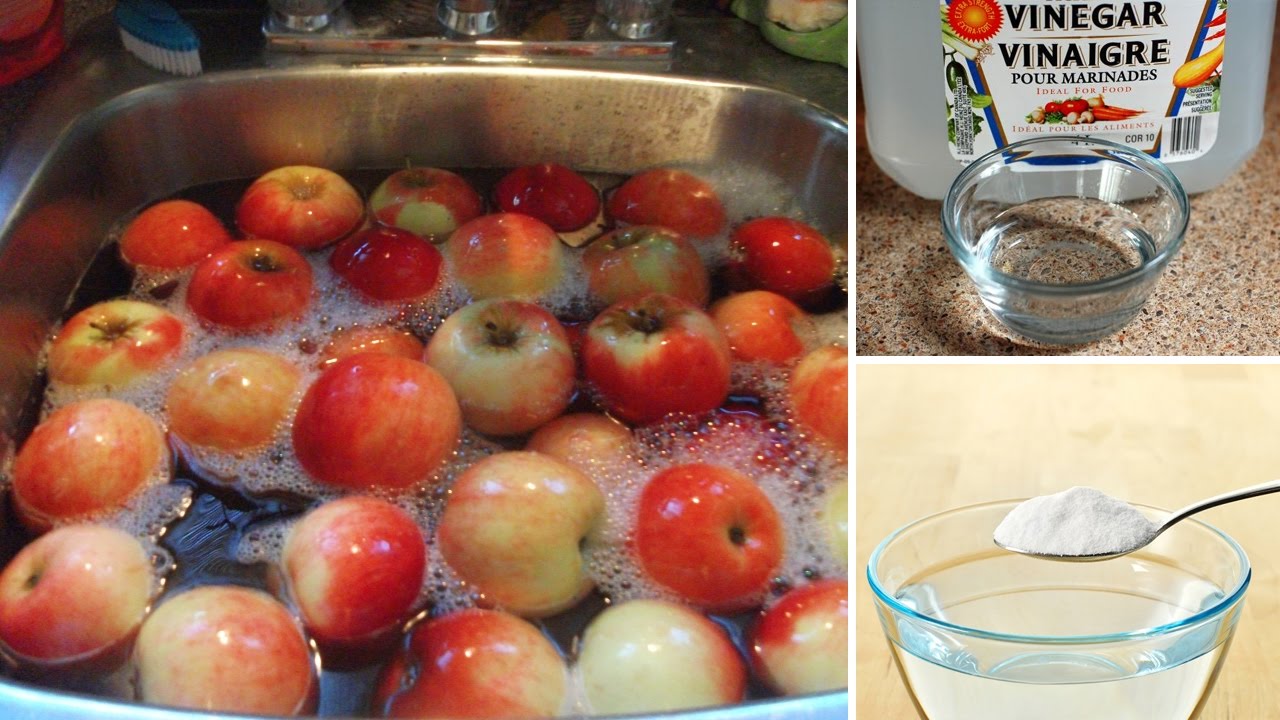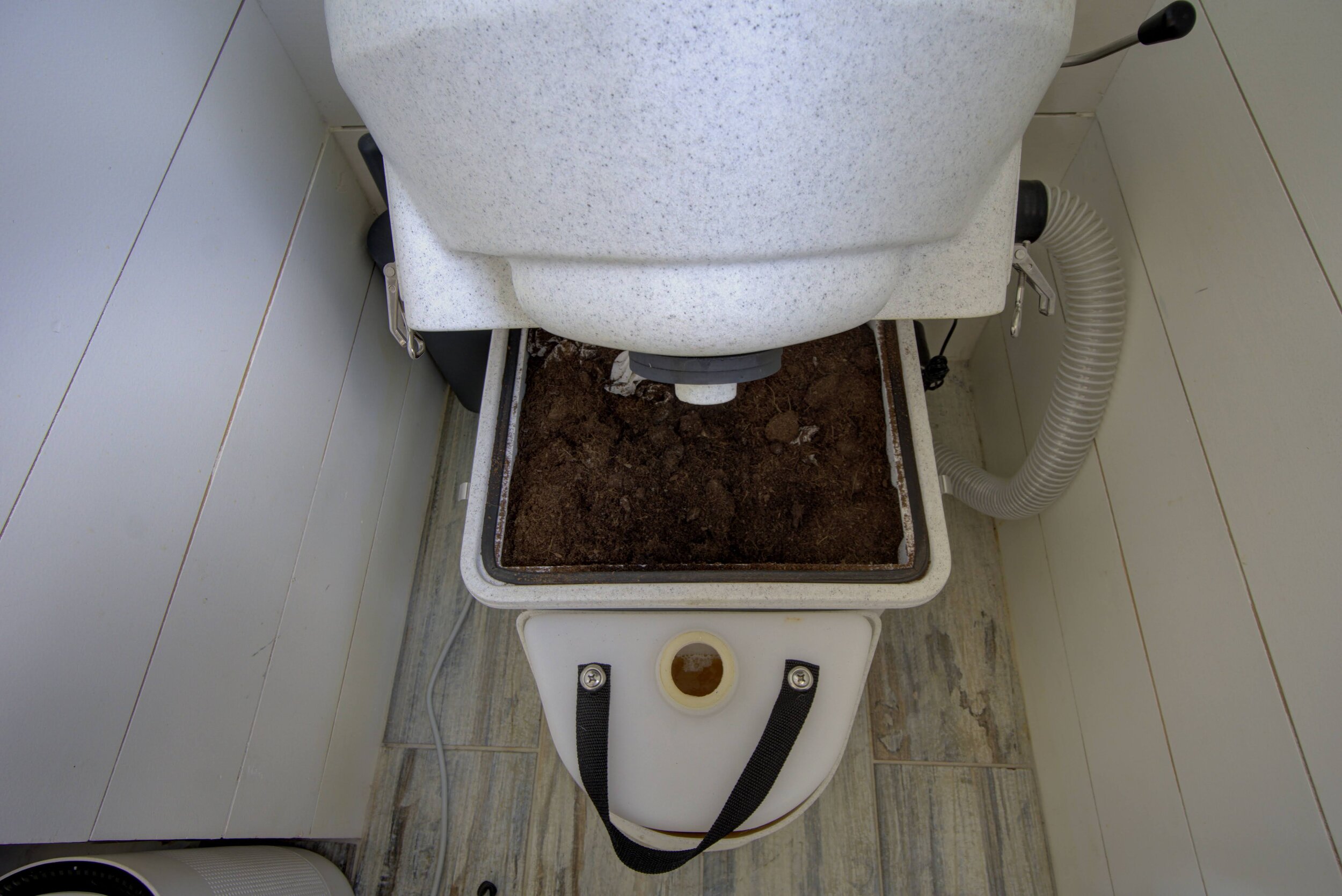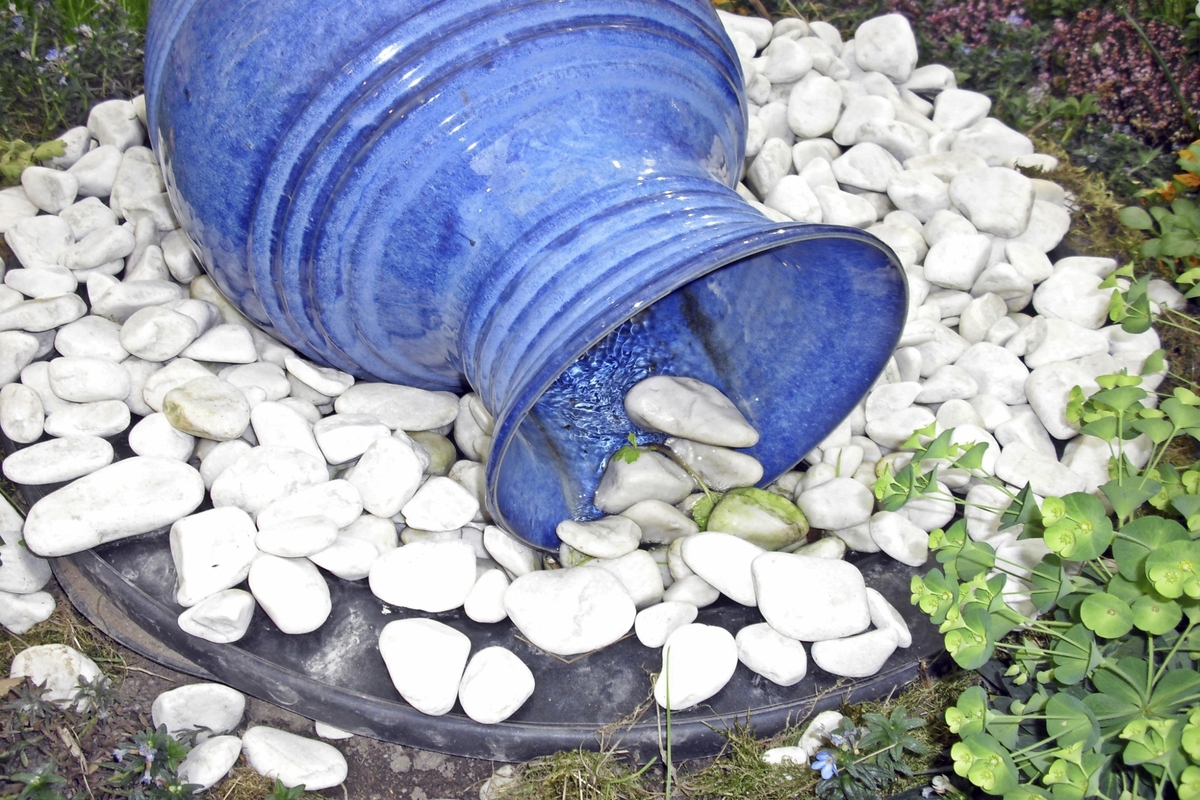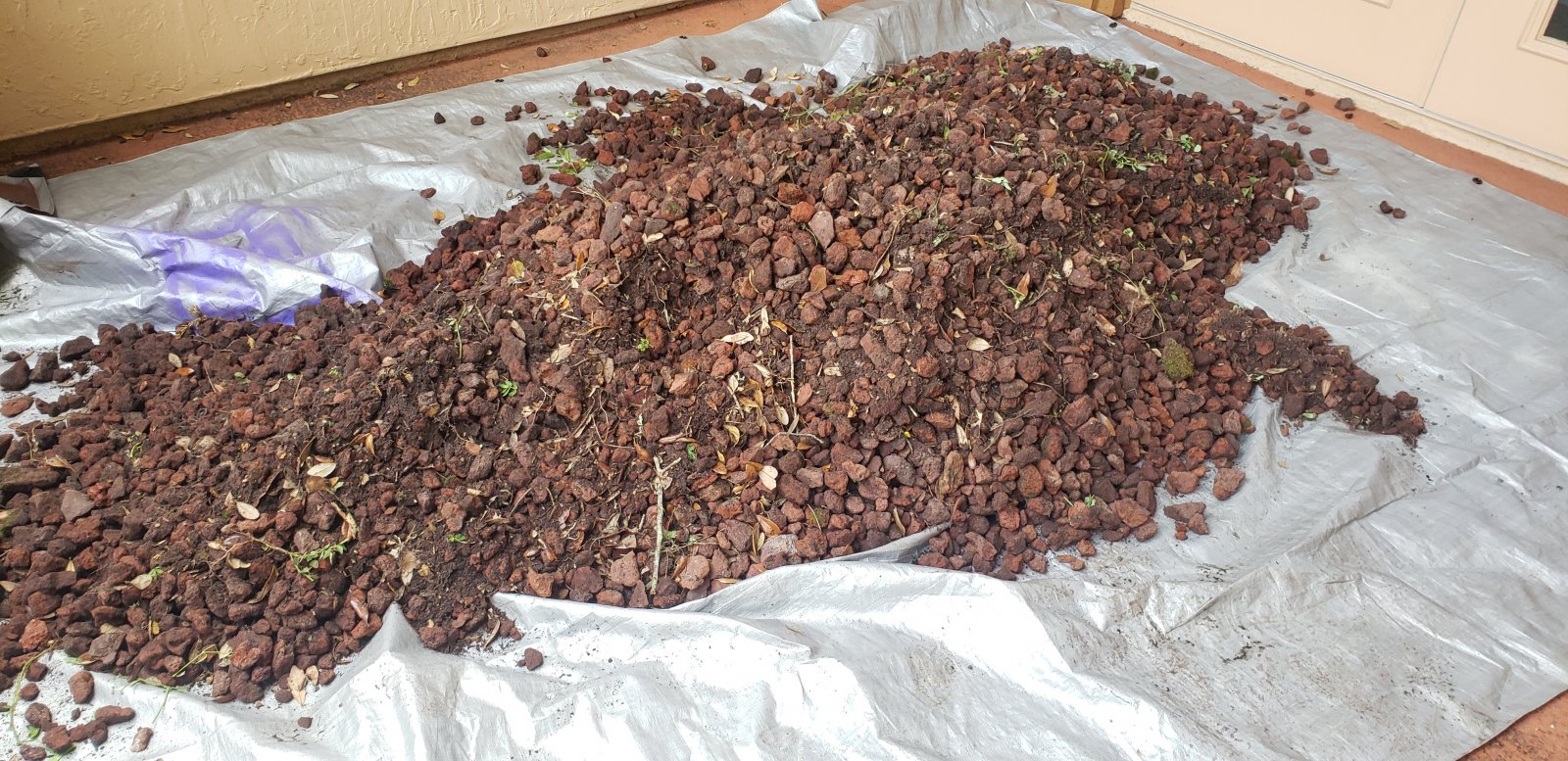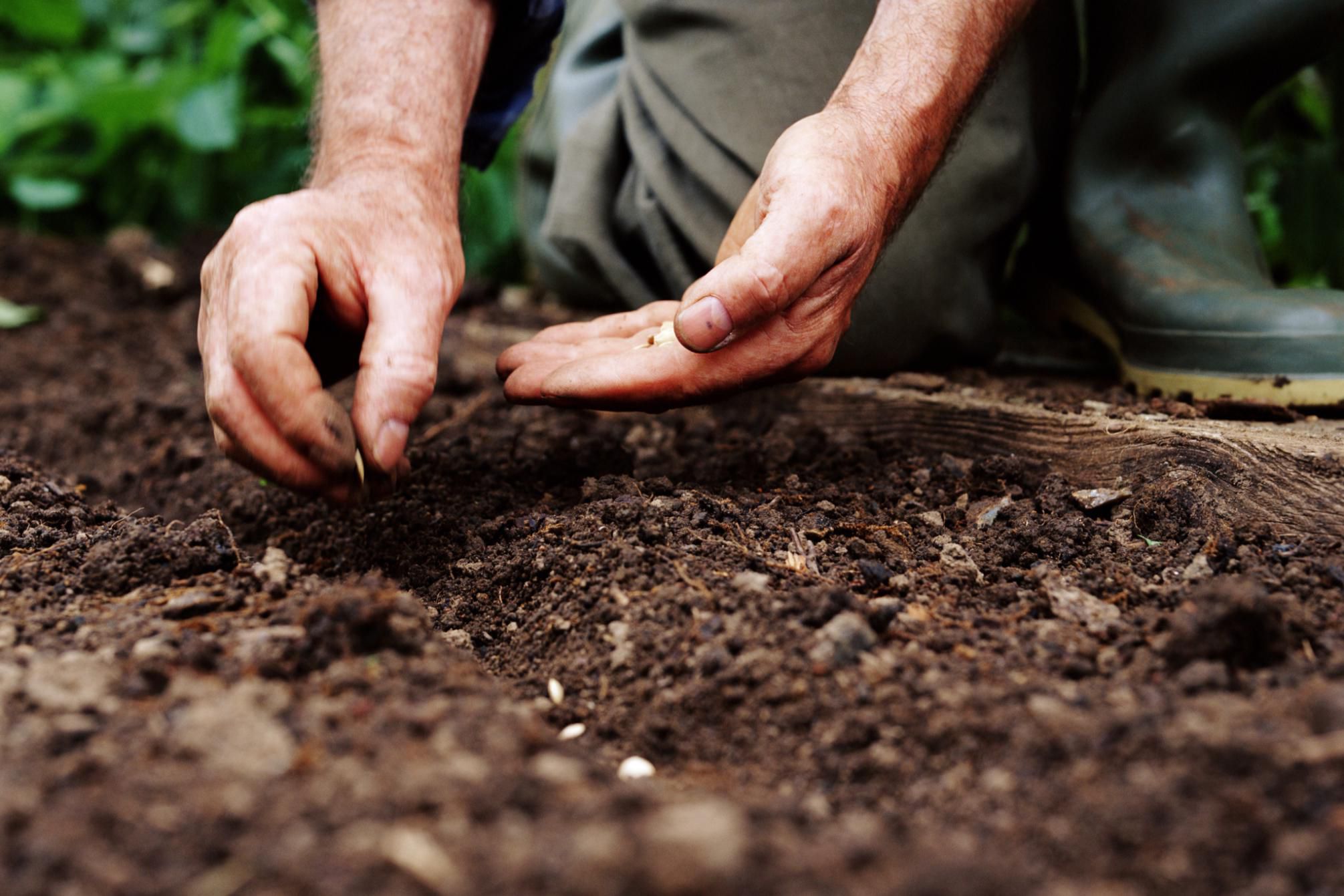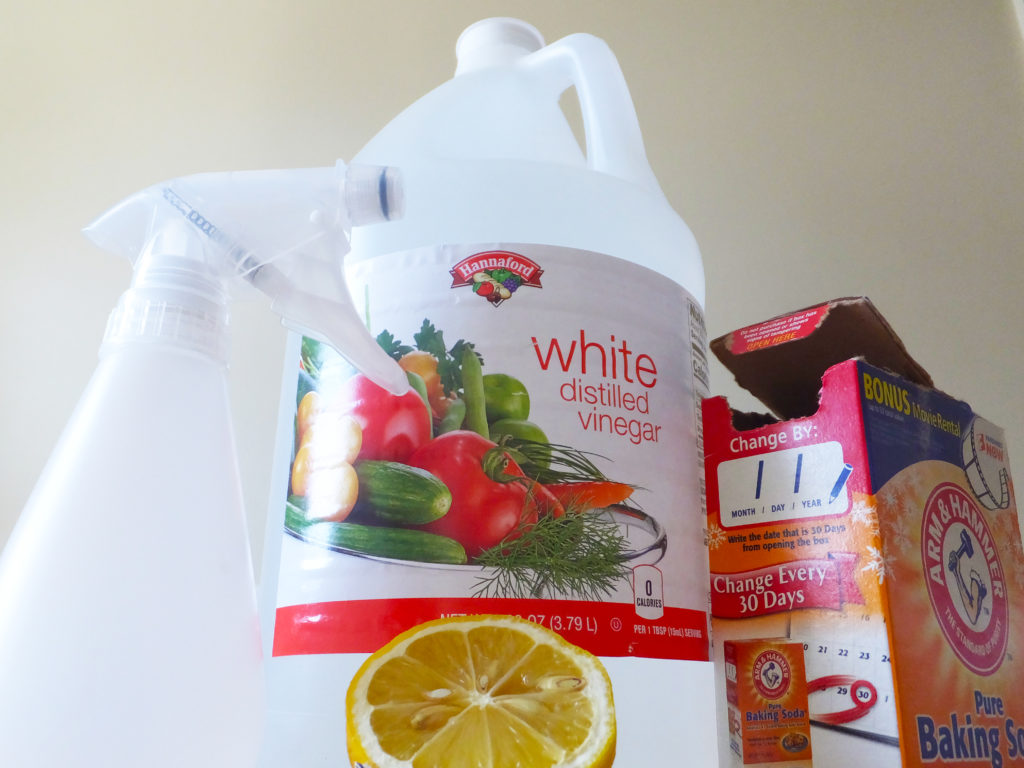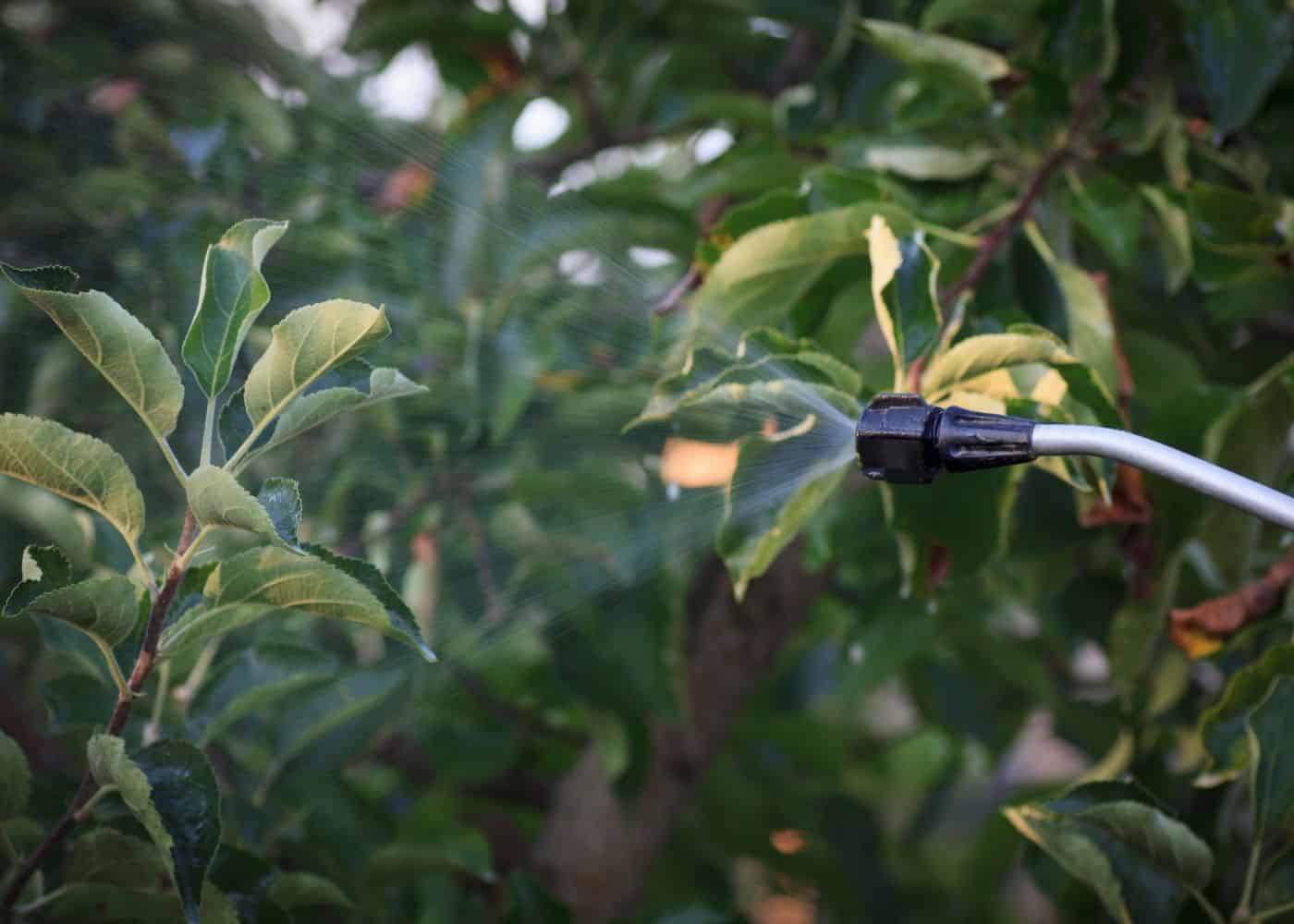Home>Gardening News and Trends>Latest News>How To Clean Apples From Pesticides
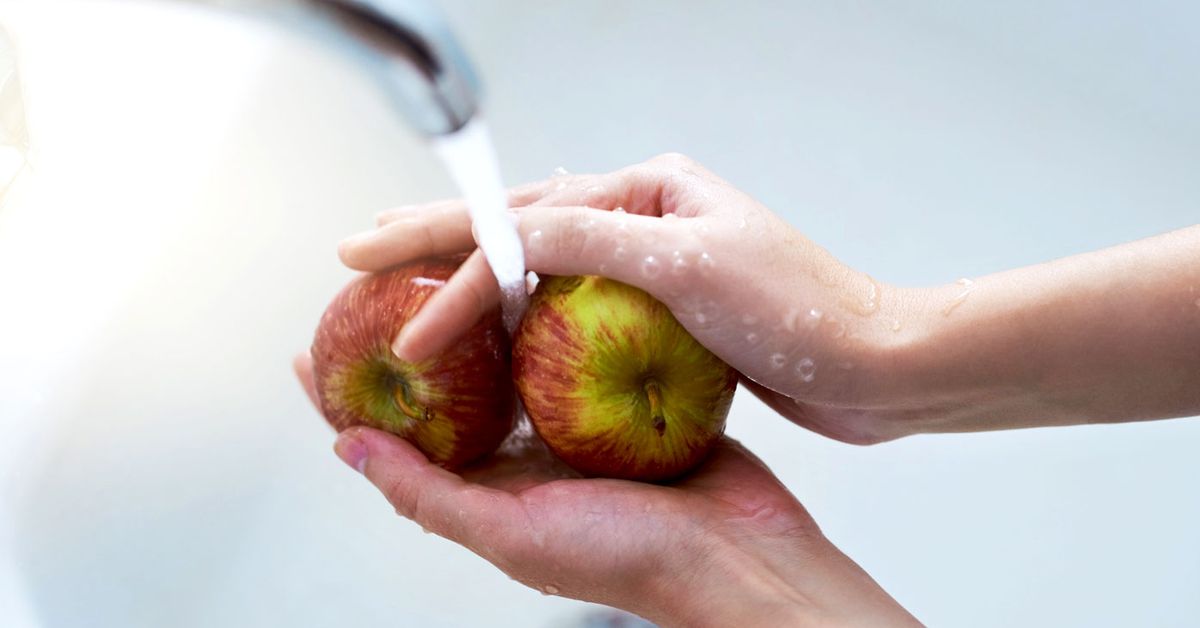

Latest News
How To Clean Apples From Pesticides
Modified: January 22, 2024
Discover the latest news on how to effectively clean apples from pesticides. Learn essential tips and techniques to ensure you and your family enjoy safe and healthy produce.
(Many of the links in this article redirect to a specific reviewed product. Your purchase of these products through affiliate links helps to generate commission for Chicagolandgardening.com, at no extra cost. Learn more)
Table of Contents
- Introduction
- Understanding the Dangers of Pesticides on Apples
- Importance of Properly Cleaning Apples
- Effective Methods to Clean Apples from Pesticides
- Method 1: Washing Apples with Water
- Method 2: Soaking Apples in Vinegar Solution
- Method 3: Using Commercial Fruit and Vegetable Wash
- Method 4: Peeling the Outer Skin of Apples
- Method 5: Buying Organic Apples
- Conclusion
Introduction
Welcome to the world of apples, the beloved fruit that has been a staple in our diets for centuries. Apples are not only delicious, but they are also packed with essential nutrients, fiber, and antioxidants. However, there is one concern that plagues the apple industry – pesticides. Pesticides are chemicals used to protect crops from pests, diseases, and weeds. While they serve a purpose in agriculture, the presence of pesticides on apples raises health and environmental concerns.
The use of pesticides on apples has become a common practice in conventional farming. Unfortunately, these chemicals can leave residue on the fruit, posing potential risks to human health when consumed. Studies have shown that exposure to pesticides can have detrimental effects on our bodies, including an increased risk of certain cancers, neurodevelopmental issues in children, and hormonal disruptions.
Given these concerns, it is crucial to take steps to minimize the risks associated with pesticide residues on apples. One of the most effective ways to do this is by properly cleaning the fruit before consumption. By following the right methods, you can significantly reduce the levels of pesticide residue on the apple’s surface, ensuring a healthier snack for you and your family.
In this article, we will explore the importance of cleaning apples to remove pesticides and share effective methods to achieve this. Whether you prefer organic or conventionally grown apples, these cleaning methods will help you enjoy your favorite fruit with peace of mind.
Understanding the Dangers of Pesticides on Apples
Pesticides are commonly used in conventional apple farming to protect the fruit from pests and diseases. Unfortunately, these pesticides can have detrimental effects on both human health and the environment. It is crucial to understand the dangers associated with pesticide residues on apples in order to make informed choices about the fruit we consume.
One of the primary concerns with pesticide residues on apples is their potential impact on human health. Studies have shown that exposure to pesticides can lead to various health issues, including an increased risk of certain cancers. Some pesticides used on apples have been linked to breast, lung, and prostate cancer. The long-term effects of these chemicals are especially concerning, as they can accumulate in the body over time.
Children are particularly vulnerable to the effects of pesticide exposure. Their developing bodies and organs are more susceptible to the harmful effects of these chemicals. Research has shown that children who consume apples with pesticide residues may experience neurodevelopmental issues, such as impaired cognitive function and behavioral problems. It is essential to prioritize the safety of our children by minimizing their exposure to these potentially harmful chemicals.
Furthermore, pesticides used on apples can also have negative implications for the environment. These chemicals can contaminate water sources, soil, and wildlife habitats. Runoff from apple orchards can find its way into rivers and lakes, harming aquatic ecosystems. Pesticide residues can also affect beneficial insects, birds, and other wildlife, disrupting the delicate balance of ecosystems.
Reducing pesticide use on apples and finding safer alternatives is a critical step towards mitigating these risks. However, as consumers, we can also take measures to protect ourselves by properly cleaning apples before consumption. By understanding the dangers of pesticide residues and adopting effective cleaning methods, we can make informed choices to safeguard our health and the environment.
Importance of Properly Cleaning Apples
Properly cleaning apples is not just a matter of removing dirt and debris; it is a crucial step in ensuring that we reduce our exposure to harmful pesticides. By taking the time to clean our apples thoroughly, we can enjoy the fruit’s many benefits while minimizing potential risks to our health.
One of the primary reasons for cleaning apples is to remove pesticide residues that may be present on the fruit’s surface. Pesticides are designed to stick to the fruit to protect it from pests, but this means that they can also adhere to our hands and be ingested when we eat the apples. By washing and cleaning the apples, we can effectively decrease the amount of pesticide residue that we consume.
Additionally, cleaning apples helps to remove any dirt, bacteria, and other contaminants that may be present. Apples are often handled by multiple people before they reach our homes – from farmers and packers to store employees. As a result, they can come into contact with various contaminants along the way. Proper cleaning reduces the chances of ingesting any harmful bacteria or pathogens that may be present.
Properly cleaning apples also helps to enhance their flavor and texture. By removing any dirt or debris, we can ensure that we are getting the full, natural flavor of the fruit. Apples that have been properly cleaned and rid of any pesticide residues will taste better and provide a more enjoyable eating experience.
Moreover, cleaning apples promotes good hygiene practices. It is important to maintain cleanliness in our food preparation routines to prevent any potential foodborne illnesses. By incorporating proper apple cleaning into our daily habits, we are demonstrating a commitment to our health and wellbeing.
By understanding the importance of properly cleaning apples, we can make informed decisions about the fruit we consume. While it may take a few extra minutes in our routine, the benefits of clean apples are well worth the effort. So, next time you reach for an apple, remember the importance of giving it a thorough wash to enjoy its natural goodness while minimizing potential risks.
Effective Methods to Clean Apples from Pesticides
Now that we understand the dangers of pesticide residues on apples and the importance of properly cleaning them, let’s explore some effective methods to remove pesticides from the fruit’s surface. These methods can help ensure that we enjoy the nutritional benefits of apples while reducing our exposure to potentially harmful chemicals.
Method 1: Washing apples with water
The simplest and most accessible method is to wash apples with water. Start by rinsing the apple under cool running water, gently rubbing the surface with your hands. This helps remove dirt, debris, and some pesticide residues. Remember to thoroughly wash all sides of the apple, including the stem and the bottom. Pat dry with a clean towel before consuming.
Method 2: Soaking apples in vinegar solution
Another effective method is to soak apples in a vinegar solution. Create a mixture of one part white vinegar to three parts water. Place the apples in the solution and let them soak for about 15 minutes. The acidic nature of vinegar helps to break down pesticide residues. After soaking, rinse the apples under running water and pat them dry.
Method 3: Using commercial fruit and vegetable wash
There are also commercial fruit and vegetable washes available in the market, specifically formulated to remove pesticide residues. Follow the instructions provided by the manufacturer for optimal results. These washes are designed to break down pesticides and should be used in conjunction with water rinsing.
Method 4: Peeling the outer skin of apples
If you prefer, you can also opt to peel the outer skin of the apple to remove any pesticide residues on the surface. However, it is important to note that peeling the apple also removes some of its valuable nutrients and fiber. If you choose this method, be sure to wash the apple before peeling to prevent any residues from contaminating the flesh.
Method 5: Buying organic apples
One of the surest ways to minimize pesticide exposure is by choosing organic apples. Organic farming practices prohibit the use of synthetic pesticides, ensuring that the apples are grown using natural methods. Organic apples are certified to be free from harmful chemicals, providing consumers with peace of mind.
By using these effective cleaning methods, we can significantly reduce pesticide residues on apples, allowing us to enjoy the fruit’s many benefits without unnecessary exposure to harmful chemicals. Whichever method you choose, remember to make it a habit to clean your apples thoroughly before enjoying them.
Method 1: Washing Apples with Water
One of the simplest and most accessible methods to clean apples from pesticides is by washing them with water. This method is effective in removing dirt, debris, and some pesticide residues, ensuring a safer and healthier fruit for consumption. Here’s how to effectively wash your apples:
1. Start by rinsing the apple under cool running water. Hold the apple under the faucet and allow the water to flow over its surface.
2. Gently rub the apple’s surface with your hands while rinsing. This helps to loosen and remove any loose dirt or debris that may be present.
3. Make sure to thoroughly wash all sides of the apple, including the stem and the bottom. Rotate the apple in your hands to ensure that all areas are covered.
4. While washing, you can also use a soft brush, like a vegetable brush, to lightly scrub the apple’s surface. This can help remove any stubborn dirt or residue that may be clinging to the fruit.
5. Continue rinsing the apple until you are satisfied that it is clean. Shake off any excess water and pat the apple dry with a clean towel or paper towel.
It is important to note that washing apples with water alone may not completely eliminate all pesticide residues. However, it is a good initial step to reduce the levels of residues on the fruit’s surface.
Remember, washing apples with water should be done just before consuming or using them in recipes to minimize the potential recontamination of the fruit. Avoid washing apples in advance and storing them, as this may allow additional contaminants to settle on the surface.
By incorporating the simple practice of washing apples with water, we can reduce pesticide residues and enjoy a cleaner and safer fruit. This method is accessible to everyone and is an essential step in maintaining our health and well-being.
Method 2: Soaking Apples in Vinegar Solution
Another effective method to remove pesticide residues from apples is by soaking them in a vinegar solution. Vinegar, specifically white vinegar, has natural acidic properties that help break down and remove pesticides from the fruit’s surface. Here’s how to use this method:
1. Create a vinegar solution by mixing one part white vinegar with three parts water. The diluted vinegar will help maintain a safe and effective concentration for cleaning the apples.
2. Place the apples in a bowl or basin large enough to hold them comfortably. Make sure there is enough solution to cover the apples completely.
3. Gently submerge the apples in the vinegar solution, ensuring that they are fully immersed. Allow them to soak for about 15 minutes. This soaking time helps to break down the pesticide residues present on the apple’s skin.
4. After the soaking period, remove the apples from the vinegar solution and rinse them thoroughly under running water. Use your hands to rub the apple’s surface while rinsing to remove any remaining residues.
5. Pat the apples dry with a clean towel or paper towel before consuming or storing them.
It’s important to note that soaking apples in a vinegar solution is not a foolproof method to remove all pesticide residues. While it can significantly reduce surface contamination, some pesticides may still remain. However, the acidic nature of vinegar makes it a valuable tool in our arsenal for cleaning apples.
Ensure that the vinegar is diluted properly as using undiluted vinegar may damage the apple’s skin or alter its taste. Additionally, always use white vinegar specifically for cleaning, as other types of vinegar, such as apple cider vinegar, may affect the taste of the fruit.
By using the method of soaking apples in a vinegar solution, we can further reduce the pesticide residues and enjoy a cleaner and safer fruit. This method is easy to implement and adds an extra level of assurance when it comes to the cleanliness of our apples.
Method 3: Using Commercial Fruit and Vegetable Wash
For those looking for an additional level of assurance in removing pesticide residues from apples, using a commercial fruit and vegetable wash can be an effective method. These specially formulated washes are designed to break down and remove pesticides, dirt, and other contaminants from the surface of fruits and vegetables. Here’s how to use this method:
1. Select a reputable commercial fruit and vegetable wash that is specifically labeled for use on apples. Follow the instructions provided by the manufacturer for optimal results.
2. Fill a clean basin or bowl with water according to the instructions on the product label. Some fruit and vegetable washes may require dilution with water.
3. Place the apples in the water and fruit wash solution, ensuring they are fully submerged. The solution should cover the apples completely for effective cleaning.
4. Gently agitate the apples in the solution, making sure each apple is thoroughly coated. This helps to dislodge and dissolve any pesticide residues clinging to the surface of the fruit.
5. Allow the apples to soak in the solution for the recommended duration mentioned on the product label. This usually ranges from a few minutes to a specified period of time.
6. After the recommended soaking time, remove the apples from the solution and rinse them well under running water. The running water will help wash away any residual fruit wash solution, pesticides, and contaminants.
7. Pat the apples dry with a clean towel or paper towel before consuming or storing them.
Using a commercial fruit and vegetable wash provides an added level of confidence in thoroughly cleaning apples. These washes are specifically developed to break down and remove pesticide residues, leaving you with cleaner and safer fruit.
Always read and follow the instructions provided by the manufacturer to ensure proper usage and concentration. Keep in mind that fruit and vegetable washes may not completely eliminate all pesticide residues, but they are effective in reducing their presence.
By incorporating the use of a commercial fruit and vegetable wash, we can further enhance the cleanliness of our apples and minimize potential pesticide exposure, offering us peace of mind when enjoying this beloved fruit.
Method 4: Peeling the Outer Skin of Apples
If you are looking for an alternative method to remove pesticide residues from apples, you may consider peeling the outer skin. Although this method may not be suitable for everyone, it can be an effective way to reduce exposure to pesticides. Here’s how to use this method:
1. Start by thoroughly washing the apple under running water. This helps remove any dirt or debris on the surface of the fruit.
2. Once the apple is clean, use a sharp paring knife or a vegetable peeler to carefully peel off the outer skin. Begin at the top of the apple, near the stem, and work your way around in a downward motion. Remove the skin in thin strips, taking care not to remove too much flesh.
3. After peeling the entire apple, rinse it once again under running water to remove any remaining residues or dirt that may have been exposed during the peeling process.
4. Pat the apple dry with a clean towel or paper towel before consuming or storing it.
It is important to note that peeling apples removes the outermost layer where pesticides are most likely to be found. However, it also eliminates some of the apple’s valuable nutrients, including fiber, vitamins, and antioxidants that are concentrated in the skin.
If you opt for this method, consider buying organic apples whenever possible. Organic apples are grown without the use of synthetic pesticides, providing a safer option. However, if organic apples are not readily available or budget-friendly, peeling conventionally grown apples can be a viable alternative.
To maintain the nutritional value of the apple, it is recommended to consume a variety of fruits and vegetables, both with and without peels, to ensure a well-rounded intake of nutrients.
By choosing the method of peeling the outer skin of apples, you can reduce pesticide exposure, but it is essential to balance it with the potential nutrient loss associated with removing the peel.
Remember, whichever method you use, ensure that you wash your hands thoroughly before handling and preparing apples to minimize the transfer of contaminants from your hands to the fruit.
By being mindful of your choices and priorities, you can enjoy apples in a way that aligns with your preferences and concerns about pesticide exposure.
Method 5: Buying Organic Apples
If you are concerned about pesticide residues on apples and want to minimize your exposure, buying organic apples is a reliable method. Organic farming practices prohibit the use of synthetic pesticides, ensuring that the apples are grown using natural methods. Here are some key reasons to consider buying organic apples:
1. Reduced pesticide exposure: Choosing organic apples means opting for fruit that is grown without the use of synthetic pesticides or genetically modified organisms (GMOs). Organic farmers implement natural pest control methods and focus on soil health and biodiversity to produce apples free from harmful chemical residues.
2. Certified organic standards: Organic apples are regulated and certified by various organic certification organizations. These organizations enforce strict standards that address all aspects of the apple farming process, from cultivation to packaging. By purchasing organic apples, you can have confidence in the authenticity and quality of the fruit.
3. Environmental benefits: Organic apple farming practices prioritize sustainability and environmental preservation. By avoiding the use of synthetic pesticides and reducing chemical runoff, organic farming minimizes harm to the ecosystem, promotes biodiversity, and protects soil and water resources for future generations.
4. Superior taste and quality: Many people believe that organic apples have a better taste and texture compared to conventionally grown ones. Organic farming practices foster naturally healthy and robust apple trees, resulting in flavorful and wholesome fruit.
5. Support for sustainable agriculture: By choosing organic apples, you support farmers and growers who are committed to sustainable and environmentally-friendly practices. Your purchase contributes to the growth of the organic farming industry, which benefits not only the farmers but also the health of the planet.
It is important to note that organic apples may cost slightly more than conventionally grown ones due to the additional efforts and resources required to maintain organic certification. However, many people believe that the added benefits of organic apples outweigh the price difference.
When shopping for organic apples, look for official organic certifications such as the USDA Organic seal or equivalent certifications in your region. These certifications provide assurance that the apples you purchase have met rigorous organic standards.
While buying organic apples is an effective method to reduce pesticide exposure, it is still recommended to wash them thoroughly before consuming. This helps remove any surface dirt or contaminants that may have come in contact with the fruit during transportation or handling.
By choosing to buy organic apples, you prioritize your health, support sustainable agricultural practices, and contribute to the well-being of the environment. Make organic apples a part of your grocery shopping routine to enjoy the benefits of pesticide-free fruit.
Conclusion
As we delve into the world of apples, it becomes evident that proper cleaning and minimizing pesticide exposure are crucial to ensure a safer and healthier fruit for consumption. Pesticides used in conventional apple farming can have detrimental effects on human health and the environment, making it essential for us to take proactive steps to reduce our exposure.
Throughout this article, we have explored various effective methods to clean apples from pesticides. Washing apples with water is a simple yet important first step, while soaking them in a vinegar solution enhances the cleaning process. Using commercial fruit and vegetable washes provides an extra level of confidence, and peeling the outer skin of apples can be an alternative method for reducing pesticide residues. Lastly, choosing to buy organic apples ensures that we consume fruit that is grown using natural methods and without synthetic pesticides.
Remember, no single method guarantees complete removal of all pesticide residues, but by combining these methods and making them a part of our apple preparation routine, we can significantly reduce our exposure to harmful chemicals. It is important to wash our hands thoroughly before handling apples and to rinse apples under running water to ensure proper cleaning.
Whether you choose conventional or organic apples, being cautious about pesticide residues and practicing proper cleaning methods allows you to enjoy the nutritional benefits of apples while promoting a safer and healthier lifestyle. By making informed choices and incorporating these cleaning methods, we can savor the crisp, juicy, and delicious taste of apples with peace of mind.
So, the next time you bite into an apple, remember the importance of cleaning it thoroughly, appreciate the efforts of farmers and growers, and savor the joy of a delicious and pesticide-conscious snack.
